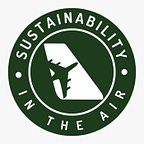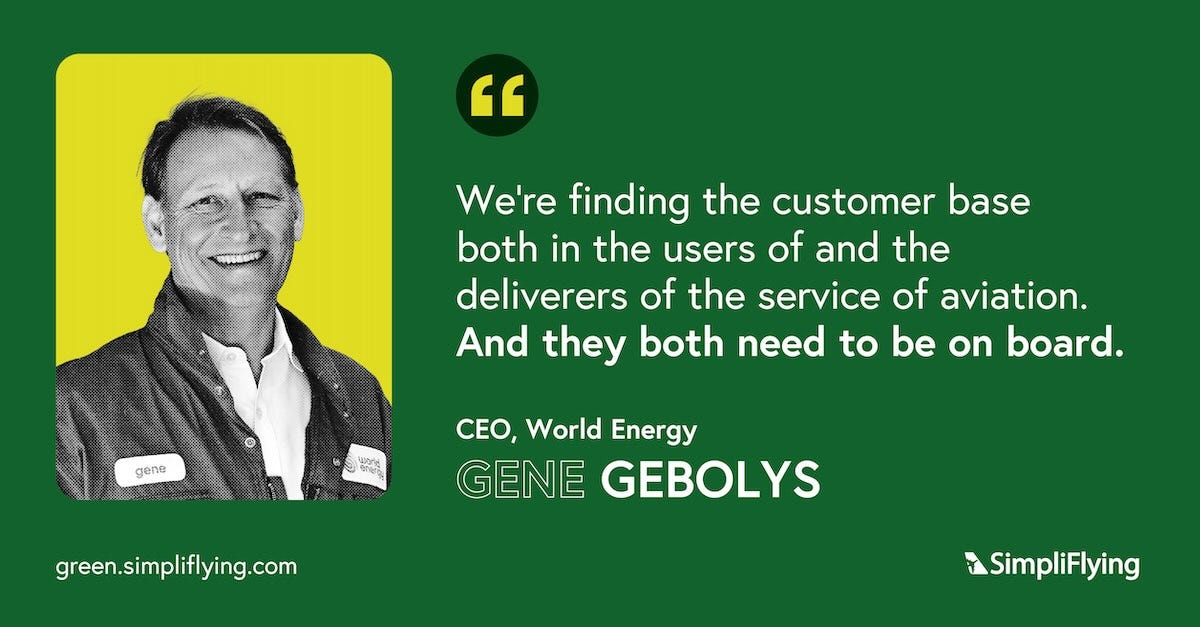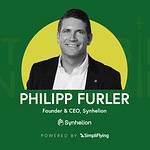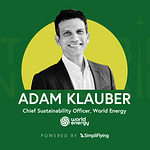In this episode of our ‘Sustainability in the Air’ podcast, Gene Gebolys, President and CEO at World Energy, speaks with SimpliFlying CEO Shashank Nigam. World Energy is the world’s first producer of sustainable aviation fuel (SAF) that has been in the business of renewable fuels for over 25 years. They produce sustainable aviation fuel, renewable diesel, and renewable naphtha, with plans to create renewable propane and green hydrogen.
Gebolys delves into the intricacies and future of SAF in this conversation. His company, with its roots stretching back over 25 years in the biofuels sector, has taken a bold turn towards developing sustainable aviation fuel (SAF), a move that addresses the urgent need for decarbonisation in aviation. World Energy’s evolution from a traditional biofuels company to a leader in SAF production marks a significant shift in focus, aligning with the growing global emphasis on environmental sustainability.
Here are the key highlights of the conversation:
The story behind World Energy (2:18)
Selling SAF’s environmental benefits, beyond mere biofuel molecules (5:58)
Investments and challenges with SAF (10:19)
The necessity and importance of hydrogen (15:23)
How California’s regulations are helping SAF production (25:05)
How the ‘Book and Claim’ method expands SAF’s reach (27:35)
Who should pay the green premium? (39:14)
Hopes for the future of sustainable aviation (50:05)
Rapid Fire! (55:01)
Keep reading for a quick overview of the episode.
Why SAF matters beyond the physical biomolecules
Under Gebolys’ insightful leadership, World Energy is redefining the essence of SAF. He explains that World Energy isn’t just selling biofuel molecules, but the value that those molecules bring in by reducing carbon emissions. He insists on creating an ecosystem to drive decarbonisation services and underscores the need for a collaborative approach across the aviation fuel supply chain.
Key to this strategy are World Energy’s partnerships with corporations like Microsoft and DHL, which are pivotal in driving forward the agenda. These collaborations are not mere fuel supply agreements but partnerships aimed at building an industry geared towards environmental responsibility.
“Increasingly, we’ve found that the products we are transitioning to, like sustainable aviation fuel, scarcely exist despite the extensive discussion around them. Our focus is on building the capacity to scale up SAF significantly. Along this journey, our emphasis is not just on selling the molecules but on the value they represent in terms of decarbonisation.”
5 ways to think about the future of SAF
1. Balancing innovations in biofuels for a sustainable future
Central to Gebolys’ strategy is the idea of balancing first and second-generation biofuels. He argues for the necessity of leveraging the benefits of first-generation biofuels as a stepping stone to developing more advanced, sustainable solutions. This balanced approach ensures a gradual and stable transition to a more sustainable aviation fuel landscape, acknowledging the importance of existing resources while pioneering future innovations.
“The challenge lies in integrating first and second-generation technologies. Some argue that we should swiftly move past first-generation methods, a view echoed in some EU regulations. I strongly disagree. The first generation lays the groundwork for a transactional ecosystem and the service of aviation decarbonisation. This vital service will emerge from the initial phase of biofuel development.”
2. Navigating market dynamics and overcoming SAF production challenges
Gebolys and his team are well-versed in the complexities of the SAF market. The company’s major initiative, a production facility in Los Angeles acquired in 2016, is the world’s first commercial scale SAF production plant.
The SAF market is riddled with challenges, explains Gebolys, from production hurdles to establishing a viable market and distribution network. World Energy hopes to overcome these hurdles by focusing on a decarbonisation ecosystem, that addresses every part of the supply chain – from creating the actual product, to establishing a customer base.
“We discovered that airlines were primarily marketing the service of decarbonisation to their customers. It became clear to us that the customer base required further development. There was also a lack of a comprehensive ecosystem to adequately serve these customers. Hence, we faced a dual challenge. Firstly, without the actual product, discussions are meaningless. Secondly, without a customer base and an ecosystem to engage these customers, the complete supply chain remains ineffective. To create a functional system, every segment of the supply chain, from start to finish, must be addressed. This has been our focus for several years.”
3. Investing in technical advances with a focus on Hydrogen
World Energy places significant emphasis on hydrogen as a crucial ingredient in SAF production. Their facilities, utilising fats, oils, and greases as base feedstock, incorporate methods of hydrogen production that result in a cleaner product. The LA facility produces low carbon intensity (CI) hydrogen from biogenic inputs, while their Houston plant utilises electrolytic hydrogen. The company is also looking to harness wind power for green hydrogen production in their new Newfoundland project.
“We must develop next generation fuels that are largely hydrogen-based. If we can utilise captured carbon with clean hydrogen to produce sustainable aviation fuel from entirely new materials, it holds great promise, though it’s still at an early stage.”
4. Seeking inspiration in California’s regulatory framework: a blueprint for global SAF adoption
California’s regulatory environment, especially its low carbon fuel standard, is highlighted by Gebolys as a key driver in making SAF economically viable. This regulatory support has been instrumental in allowing World Energy to generate credits that help subsidise SAF costs, making it a more accessible option in the market. The support has also been crucial in helping scale World Energy’s operations and enabled them to distribute SAF through their well-connected pipeline system that also runs into LAX. Gebolys points to California as a model for other regions, emphasising the importance of supportive regulatory frameworks in fostering the growth of the SAF industry.
“In California, we generate specific low carbon fuel standard credits, providing a revenue source for the fuel. This enables us to offer it to customers at a lower price. Lowering costs is essential to increase utilisation. The contribution from the state, unique to California, allows us to produce SAF at optimal cost-effectiveness.”
5. Using Book and Claim to equalise the field
A pivotal aspect of World Energy’s strategy is the ‘book and claim’ methodology. This method allows for the decarbonisation of flights in a manner that overcomes the logistical hurdles of SAF distribution. By enabling airlines to purchase SAF credits in one location and claim the carbon reduction benefits elsewhere, this approach facilitates a broader, more efficient implementation of SAF across the aviation industry.
“Why would we not use the efficiency of the modern information world to drive efficiency and decarbonisation? This isn’t a maybe, this is an idea that people should get their heads wrapped around someday… This is the only efficient way to do it.”
‘Sustainability in the Air’ is the world’s leading podcast dedicated to sustainable aviation. Through in-depth conversations with top aviation leaders, we break through the clutter and provide a clear roadmap for a net-zero future.
















